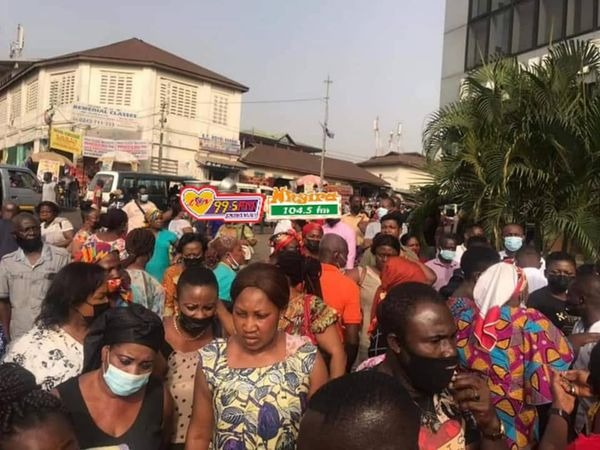The Canadian government has supported the country with developmental projects worth about 50 million Canadian dollars over the last couple of years.
According to the Canadian High Commissioner to Ghana, Kati Csaba, about 150,000 dollars would be channeled into the agricultural sector and other support schemes to help the country achieve sustained economic growth.
“We provide bilateral portfolio development projects to Ghana every year, approximately worth 50 million Canadian dollars. Each of those projects being funded within that portfolio is developed over a longer period of time. And we have been supporting work in inclusive economic growth, supporting the agricultural growth of Ghana which is our flagship programme with 125 million Canadian dollars allocated towards that,” she said.
Meanwhile, the Canadian government has announced 30 million Canadian dollars, the equivalent of GH¢138 million to support four innovative projects over a period of four to five years. Some 31,000 Ghanaian women across the country are expected to directly benefit from the funding.
Disclosing this at the launch of the Women’s Economic Empowerment in Ghana Project, Kati Csaba said “from today’s learning sessions on business development and access to finance to promising practices that would be identified in the field and lessons learned that will be documented through monitoring and evaluation, Canada is committed to learning through these projects. I’m excited and optimistic as well as perhaps a little impatient to witness the next decade of Ghana’s economic growth.”
Kosi Yankey Ayeh, Executive Director of the Ghana Enterprise Agency, who represented the Trade Minister, welcomed the support and said the government, through the Ghana Enterprise Agency, has disbursed funds, out of which 80% went to vulnerable women. This was through the covid-19 Alleviation Fund.
“Our informal sector is huge and majority of them are women. It is about time that our interventions and the work we do move them from the informal sector to a more formalised and sustained sector so that when challenges like the pandemic occur, they can still be resilient.
“In keeping our focus on women and to leverage on government’s flagship programmes, the government helped to alleviate the plights of Ghanaians after and during covid-19. They rolled out the coronavirus alleviation programme. In all, we had about 9,000 applicants, close to 60% of them were women, 80% were in the informal sector and there was also a conscious effort from our side to ensure that the women in the informal sector were included,” the Executive Director said.
The four projects are targeted at Ghanaian women, from specific urban, peri-urban and rural areas in eight regions of the country currently experiencing poverty.

